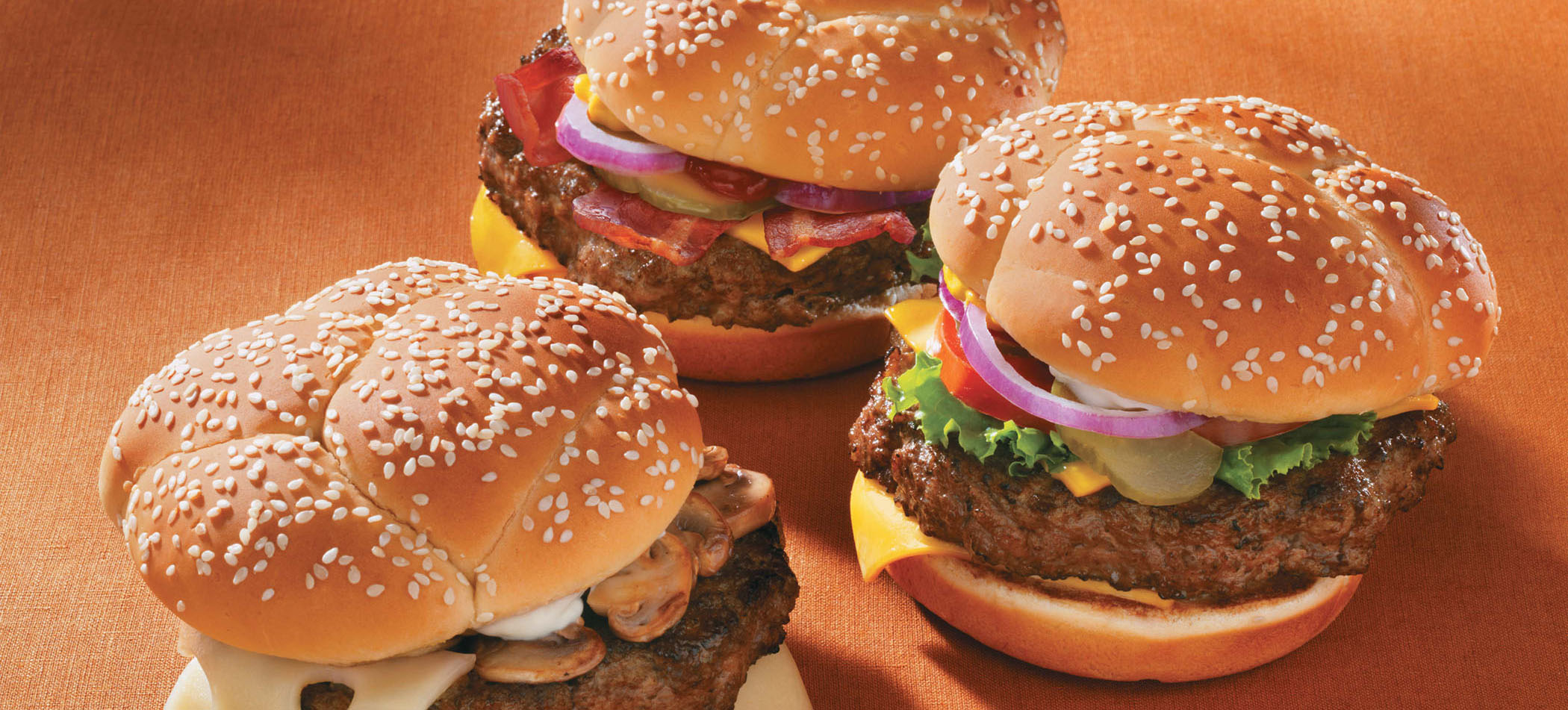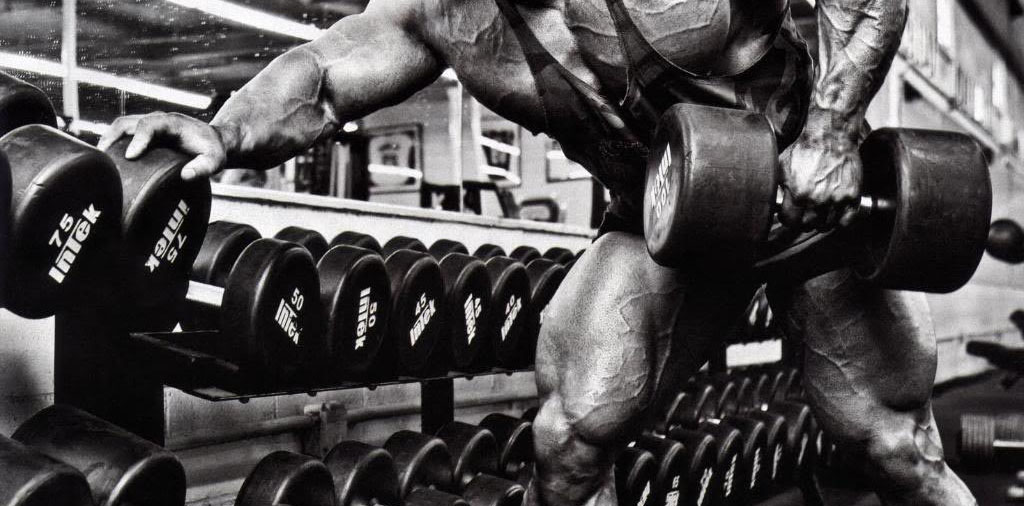Gentlemen, summer is almost upon us. It’s time to make our bodies presentable. Time to shred off fat and display the masculine physique you have built that lies underneath. At a lower level of body-fat, all of the muscle you currently possess will be ever more apparent. It is not uncommon to look 10-20 pounds bigger by losing a little weight.
In this article I will explain the basics of cutting fat, with the focus being on maintaining muscle throughout the process. Anyone can lose a bunch of weight—the tricky part is maintaining your hard earned muscle in the process. Luckily it is just a two-step procedure that can be efficiently implemented:
Cutting Fat (But Not Muscle) = Losing Weight + Maintaining Strength
Losing Weight
Changes in weight are a result of energy balance—if you burn more calories than you consume you will lose weight (1). This is known as The Law of Thermodynamics, and there are 2 basic approaches to accomplishing this:
1. Burn more calories.
This can be done several different ways. Most people think cardio is the only way, but it is not. It does accomplish the goal, but it is important to recognize the alternatives. For example, by simply moving more over the course of the day you will burn more calories. Walk instead of driving, take the stairs instead of the elevator, engage in more active hobbies, etc. Personally I love to play basketball and ride my bike, so I will simply engage in these activities with far more frequency when I am trying to cut weight.
2. Eat less.
This approach is arguably more effective. Most people grossly overestimate the number of calories burned through exercise. A recent study shows that running one mile yields a net caloric burn of just 100 calories (2). That is not much. If you run 3 miles during a session of exercise that yields 300 calories burned. Not bad, but the same effect is achieved by eating 300 calories less – something that requires less effort than 30 minutes of running.
The most effective route is to combine both 1 and 2, which is what I do and wholeheartedly recommend. Use this calculator to approximate how many calories you should eat daily to lose 1 pound per week (enter your stats and select the moderate weight loss option). Then incorporate some aerobic exercise as well, if you wish.
Now you should be losing 1 to 1.5 pounds per week. Why only 1.5 pounds per week you ask? The truth is more is possible but not recommended, as you will start to sacrifice muscle in the process. Not to mention fatigue, constipation, nausea, and diarrhea are side effects of extreme rates of weight loss (3).
Protein
One dietary consideration you should pay attention to is protein intake. While protein is an important factor for your body at all times, as it is responsible for repairing cells and creating new ones, it becomes even more important during a period of weight loss (if you are interested in preserving your muscle, that is) (4). This is because protein is muscle sparing—higher protein intake has been shown to assist your body in remaining anti-catabolic by maintaining a positive nitrogen balance (5). Positive nitrogen balance is found during periods of growth and repair.
What this means for you is eat sufficient protein. I know a lot of numbers get thrown around for what exactly that entails, but current studies suggest that strength athletes should consume roughly 0.8 grams per pound (1.75 g/kg) of bodyweight per day (6). And I agree. It is a good deal of protein, but not a number so ridiculous that you need to plan the entire day around it. If you cannot achieve this number by chowing down some meat the old fashion way, then one protein shake a day (30-35 grams of protein if made with milk) will make hitting this target far easier.
Maintaining Strength
The second component of effective fat loss is maintaining strength. This is necessary because our bodies must adapt to the demands they are placed under. This principle is known as the General Adaptation Syndrome, and it means that when we place our muscles under sufficient stress, our bodies will be forced to retain them, or even spur them to grow (7).
In the case of weight loss I believe sufficient stress can be defined as using the same amount of weight and repetitions for your exercises as before you began to lose weight (or more, if possible). If this is done correctly, the majority of the lost weight will be fat, while most muscle is spared. If you neglect this fact and avoid weight training at a high intensity, you will lose significant portions of muscle along with fat during a period of weight loss (8).
However, energy levels tend will be lower during a period of weight loss. This is because your body has fewer calories to work with – literally less energy. And so training volume should drop to reflect this. I suggest weight training about 3 times per week, and performing fewer sets than normal during these sessions. But remember—you must maintain intensity (repetitions and weight).
Conclusion
Move more, eat less, and lift weights to lose fat but maintain your muscle mass.
Read More: All Girls Like Muscular Guys
References:
1. Faires VM. Thermodynamics. New York, NY: Macmillan, 1967.
2. Cameron et al. Energy Expenditure of Walking and Running. Medicine & Science in Sport & Exercise, Dec. 2004.
3. Heymsfield SB, van Mierlo CAJ, van der Knaap HCM, Heo M, Frier HI. Wright Management using a meal replacement stategy: meta and pooling analysis from six studies. International Journal of Obesity and Related Metabolic Disorders 2003;27:537-549.
4. Shils ME, Young VR. Modern Nutrition in Health and Disease, 7th ed. Philadelphia, PA: Lea & Febiger, 1988.
5. Meckling, Kelly A. Meckling KA, and Rachel Sherfey R. Sherfey. A randomized trial of a hypocaloric high-protein diet, with and without exercise, on weight loss, fitness, and markers of the Metabolic Syndrome in overweight and obese women. Applied physiology, nutrition, and metabolism 32.4 (2007): 743-752.
6. Lemon PW. Protein and amino acid needs of the strength athlete. International Journal of Sports Nutrition 1991;1(2):127-145.
7. Chiu, Loren ZF, and Jacque L. Barnes. The fitness-fatigue model revisited: Implications for planning short-and long-term training. Strength and Conditioning Journal 25.6 (2003): 42-51.
8. Layman, Donald K., et al. “Dietary protein and exercise have additive effects on body composition during weight loss in adult women.” The Journal of nutrition 135.8 (2005): 1903-1910.



There are four Laws of Thermodynamics, and you misstate the First one. Its application says that in order to gain weight, you need to consume more than you expend. It cannot be concluded from it that you automatically gain weight by consuming more calories than you expend. Furthermore, your presupposition is that a calorie is a calorie, based on the First Law. It isn’t applicable in biological systems such as a human body, as that would violate the Second Law of Thermodynamics (cf. Feinman and Fine, Nutrition Journal, 2004). And yes, my MSc rocks.
Thank you. I felt that this was necessary too.
THE IN HOLE IS BIGGER THAN THE OUT HOLE.
DON’T PUT TOO MUCH IN THE IN HOLE.
This sounds like a reference to the South Park episode where they eat with their behind.
Haha
This shit is wrong. Go read Gary Taubes “Why We Get Fat” or “Good Calories, Bad Calories”.
No, it isn’t wrong. It’s a simplification, but it is not wrong. For 90% of people, working out your BMR and consistently eating less than it will cause you to lose weight.
For 90% of people, doing anything other than the S.A.D diet will cause you too lose weight. herp’s point is some diets plain and simple, are more effective than others
Well, it’s basically impossible to have a shittier diet than the SAD. Except for following the USDA food pyramid plus drinking half a gallon of soda per day. Works like a charm (if you want to look and feel like shit).
To add to that: if the amount you chose causes you to gain after a week, eat less than the amount you chose, repeating the process until you start losing.
Fast daily between 9pm and 1pm the following day to maximise fat burning window, train fasted at noon.
Refeed with carbs and low fat to just over BMR on training days to replenish muscle glycogen, and ensure max lifts can still be hit for next time.
Eat at BMR -40% on rest days, with few carbs and higher fats for T reasons.
Training days/rest day weekly split should be 3/4.
Voila – LeanGains cut
Yeah, leangains is amazing. I swear that I’m making weight lifting gains on a 40% cut using the leangains strategy.
.8 grams/lbs of protein when cutting down. But 1.5 grams per pound when bulking(nexxtlevelup)
good to know
Comment about girl running …. dat azz!
Am making that my wallpaper
That calculator suggested i eat 3200 calories a day. That doesnt seem right.
Yeah, the calculator is REALLY bad. At the level it gave me I would gain weight. I used this http://www.1percentedge.com/ifcalc/ just to calculate my basic metabolic rate. And I’m logging on http://www.myfitnesspal.com/ I lost 24 lbs from when I started. http://www.myfitnesspal.com/ also has a calculator that can work. Sadly, they underlist the amount of protein, add 30-50% to the minimum and it should be good. But do not use the calculator from this article.
Man, these advices are simply to follow and work just fine. 30min in the steam room once a day to sweat all the poison out of one’s body also contributes significantly to weight loss.
Cook at home and bring food to work. Non-homemade meals are low in nutrients and therefore lead us to consume more calories than our bodies actually need.
Homemade meals need to include lots of green vegetables. Forget about potatoes and noodles. Choose rice instead.
The sun is a portable recharger and your body is a wireless plug. Absorb as much energy as you can in the morning and early afternoon.
Haha, steam room. In Southeast Asia, I can just go ride a bicycle for 30 minutes outside, and being outside IS a fucking steam room, it is so hot and humid here.
Your last name is Rambo and you are in Southeast Asia. I am so sending reinforcements within the next 12hrs. They will fuck that shit up like a fire tornado. Hold your position. I repeat, hold your position. Haha.
Cycling is cool. Have you listened to Kraftwerk’s album: Tour de France?
You can find me pretty easily, I’ll just be rocking out like Rambo in the jungles of Vietnam and Cambodia with my machine gun.
uh, I meant Vietnam or Burma, since my fourth movie took place in Burma.
I started eating primal, check marksdailyapple.com, and I couldn’t help but drop a ton of weight.
More practical would be saying eat MORE fat and meat, and less bread and taters and junk food. In the end you’ll end up eating less, but it’s shit advice to just say “eat less” without doing too much to address hunger and keeping away cravings.
And you can lose weight without doing shit. I’m lazy as fuck (but do walk a lot) and simply by changing my eating habits lost 15kilos and plenty of fat, without becoming a skinny runt.
Of course to get more ripped one needs to exercise (“burn more calories”), but simply to lose weight it’s not as important as you think.
People think they’re hungry when they’re really not and that’s all there is to it. They just need to skip a couple meals every now and then and learn to realize the slightest craving to go grab a sandwich is not hunger; it’s a sensation that passes in 20 minutes.
In the long run I don’t think there’s some fat vs. carbs magic trick to be pulled. People just need to fix their psychological food addictions and learn portion control. I see chubsters eating potato chips and desserts with both lunch and dinner like it’s a birthright. Were they out heaving bales of hay? No, they were sedentary and don’t need the empty calories. This is entirely a matter of self control.
Of course. Point is, eating enough fat and replacing carbs with fat aids in learning portion control, as it keeps you full for longer, and fills you up quicker. Sure that’s a generalisation, but I find it to be a useful one, particularly for people who are already overweight.
It is better to eat fat over carbs when sedentary, and fat ain’t empty calories like sugar or flour, not does it spike your blood sugar. I’m sure most overweight people understand plenty well that it’s a matter of self-control. Next step is a strategy to controlling the self. Hence my post.
I think losing weight is still not an exact science, but come on eating less than you consume on a significant period of time has been shown to be the most effective solution again and again. Tons of scientific evidence supporting it. Any sensible person would want to start with this simple strategy before considering stuff like no carbs or primal whatever.
Fast 2 days out of the week, eating less than 600 calories on fast days. The rest of the days, eat pretty much what you want. Exercise often, lift weights.
Result: Shed fat, retain lean muscle. Lose weight.
Utter broscience eat a 500 cal deficit (1000 if your over 20% body fat, bf and cal requirements can be worked out online btw).
also water! often hunger is mistaken for dehydration. as soon as I started upping my water intake to a healthy level, eating less came naturally and my skin glowed etc.